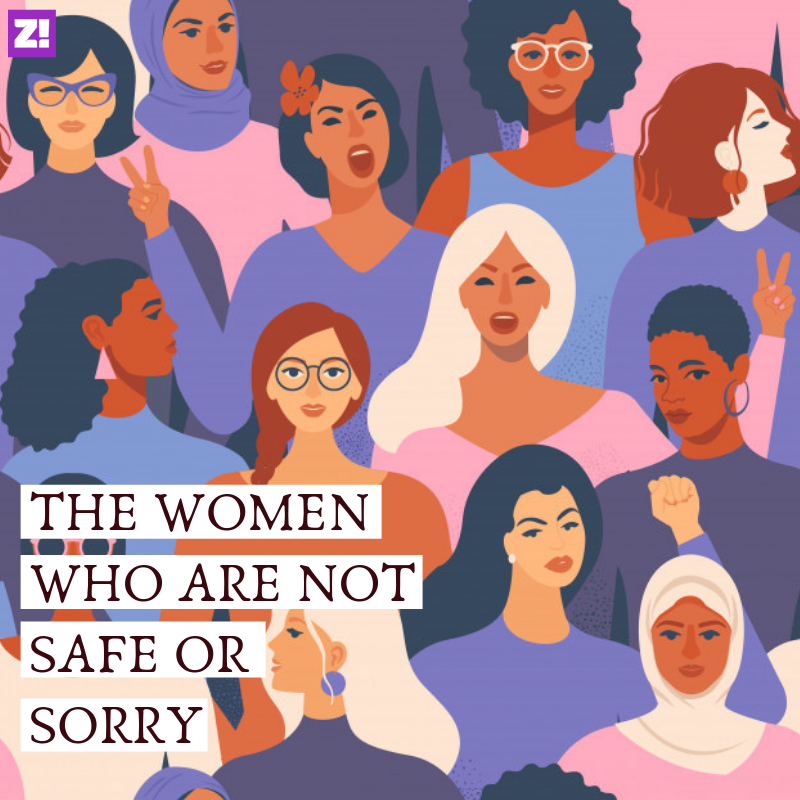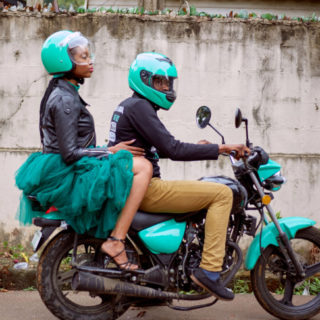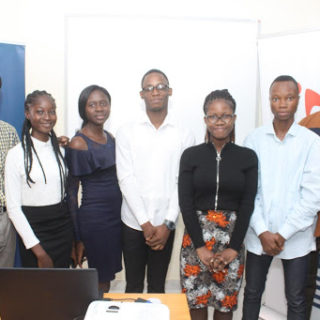You’ve probably heard the story before.

An exciting female musician begins to catch some buzz. After teasing crumbs on her Instagram, she puts herself out there for the first time. Millions more get to meet this insane talent.
That’s where things start to get funny. To some, she’s as ‘fine’ as they expect any self-respecting female musician to be. To others, she’s a bit too fine – so much that they’re sure her body is her primary product. But she does well. Well enough that she damns the warnings to tone down the ‘energy’.
See, there’s no space on the fringes for women in Nigerian music.
But who cares? She drops the album. Everyone laps it up.
Some more good news; a baby. Great, right? A fitting end to the first chapter of a budding success story, right? Not exactly. Because for the next few weeks, our heroine has to deal with new rumours that she sold herself out for money.
Pundits divine she’ll choose her family over the music. Others say she never cared in the first place.
By the time she begins to roll out her next single, she’s seen the light in all the ‘advice’. No-one cares anymore.
This is a true story.
Or at least, an aggregate of the real stories of artists like Waje and Omawumi. It’s the inverse of Teni the Entertainer’s troubles. It’s what everyone expected to happen to Tiwa Savage.
It tells of a very simple reality; that while Nigerians may love their female musicians, we expect them to fit very strict specifications.
They have to be traditionally beautiful, but not too much, or it may intimidate us. They have to be strong, but only in a motherly sense. Sex appeal is super important, but they can’t have partners, especially wealthy ones. They now belong to us.
And God forbid they go so far that they have kids and a ‘happy married life’ after. Tueh.
Basically, they have to be safe – as safe as possible.
You see, everyone knows that Nigerian music is largely a male enterprise.
For all the ground covered by Nigeria’s pop princes – Wizkid, Burna Boy, Davido, Tekno, Mr Eazi, only one woman plays in the same league – Tiwa Savage.
What no-one ever talks about is that women are the uber-minority in pop culture, because they have to play by a different set of rules entirely. And everyone, male and female, whether you’re a record label head or Kamoru with the MP3 player, is guilty of upholding those rules.
How? You see, we love to classify things. Food. Music. And the people who make it. But when an unfamiliar set of people doesn’t fit any classification, we sort-of panic, and find a way to get rid of them.
We’re also guilty of doing ourselves a great disservice.
By expecting women in music to be simple and safe, conservative or matronly, we shut our eyes and ears to everything else that makes them women. We tell them there are no ears for their stories or their experiences.
Till this day, the Nigerian wife in represented in music as a hyper-sexual opportunist or the weaker vessel – a hapless appendage, in songs written by naive young men and women who should know better.
We tell them that their identity does not matter – they might as well be all be versions of the same person, like mass-produced dolls off a production line.
And in doing so, we silence the best voices before their first words.
It’s no mistake that one of the biggest criticisms of Nigerian music is that it’s mostly opaque.
It’s hard to see beneath the veil of party bangers and praise singing. When you do manage to steal a look, things are as bland and impersonal as possible.
That’s why it’s important that things are changing. Cue a group of women who are breaking that mould.
The subject of where they come from is exciting; some will remind you of the strong back women of 1990s R&B. Others preach the militant gospel of the internet-assisted open source feminism of the 2010s. Others just are, because they really don’t need to explain where they’re from.
In the last few years, we’ve been confronted with women who do not feel the need to satisfy our expectations.
And it’s been beautiful to watch.
There’s Teni; an absolute baby girl who rocks baggy shorts and is proof that beauty doesn’t always come in size 12. The phenomenal Asa is proof that women can be smart, politically aware and successful musicians while giving no hoots about your desire for sex appeal. Tiwa oozes that sex appeal yet she has a workhorse’s reputation as well and is going benchmark-for-benchmark with her male peers.
If there’s one thing common among these women, it is that they do not feel the need to satisfy our expectations. They are not safe, neither are they sorry for how you feel about that.
Of course, they’ve faced their fair share of criticism. Some have accused Tiwa, for instance, of being too pick-me and ignorant of the plight that women face.
But such criticism is beside the point. The women, like Tiwa and Teni, who choose to do things on their terms are an affront to our ideas of what women should and can be.
For starters, they bring with them a refreshing type of authenticity.
There’s no better proof of this today than Teni – an artist who has shed all the typical expectations of a female musician and forced us to focus on what she can do. And within that ability to make extremely relatable songs, Teni’s connected to her audience in ways that none of her more ‘practical’ predecessors could lay claim to.
Her success, if nothing else, is an inspiration–you’ll see a few more Tenis soon enough.
Of course, for everyone who loves music, this should mean everything.
‘Safe’ often means familiar, but when artistes no longer feel pressured by that tag, they make what they want to make.
Today, the alte scene is defined by artists who are dipping their hands in various unfamiliar genres of music. But it is arguably the women who are doing the most audacious genre-bending, recording entire projects on cell phones and baring their soul in their work in a way that’s just unusual. Artistes like Lady Donli make no attempt to fit the mould and one track at a time, they’re changing our ideas of what ‘Nigerian’ can or should sound like.
This new wave of defiant women in art and their refreshing stories is not unique to music.
Two of the best young photographers from out of Nigeria – Emily Nkanga and Yagazie Emezi – are young, self-aware and unapologetic women. Oyinkan Braithwaite, Genevieve Nnaji and Nora Awolowo are telling nuanced stories of the Nigerian experience through female eyes and we love it. This revolution will be televised and streamed on IG as well.
It’s somewhat telling that many of the women who got buried in the pressure to conform are now giving as few fucks as possible too. The last few months have gifted us with rawer, more personal versions of stalwarts like Waje and Omawumi – and music they wouldn’t have made years ago.
The women who do not feel the need to be safe are writing a new template for the Nigerian woman in music, and art, in a larger sense. It’s one where the only person she has to answer to is herself, and we’re already the better for it.
While you’re here, let me tell you about the Zikoko Pop Newsletter.
It’s called Poppin’ – everything you should know happening in pop culture, plus recommendations, our fire playlists, info on all the best parties and freebies you won’t get anywhere else. Do the right thing and sign up, my gee.




